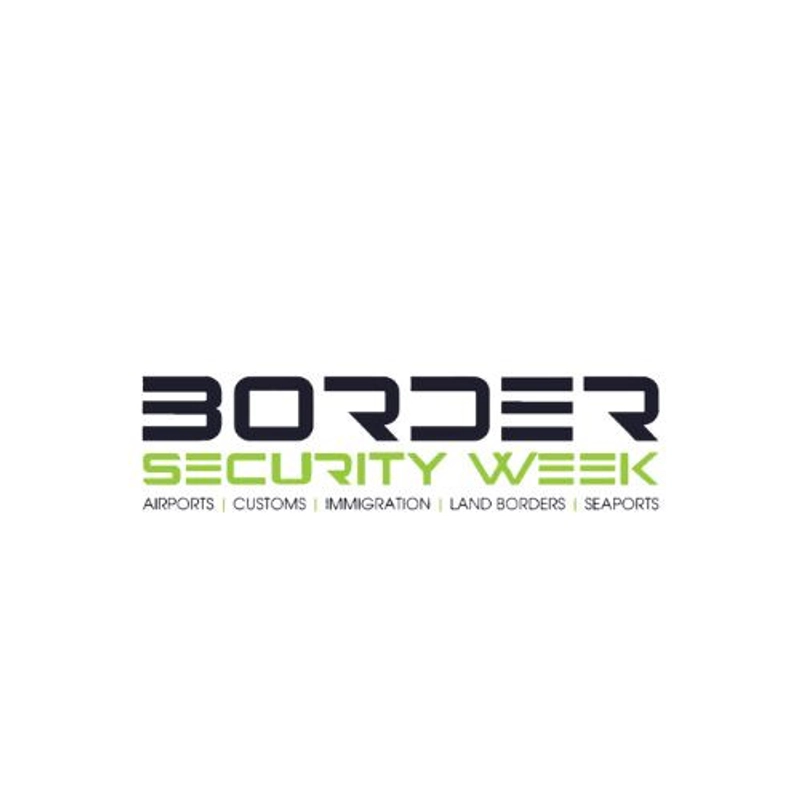Home Secuirity Events in Cape Town


Firexpo Cape Town
Firexpo Cape Town: A Leading Event in Fire Safety and Risk Management
The Firexpo Cape Town, hosted at the prestigious Cape Town International Convention Centre (CTICC), stands out as one of the premier gatherings dedicated to fire safety in the region. This event is not just about fire prevention but represents a broader commitment to protecting lives, property, and infrastructure through advanced technologies and proactive management strategies.
Co-located with important exhibitions such as Securex South Africa, A-OSH EXPO, and the Facilities Management Expo, Firexpo Cape Town provides visitors with a unique opportunity to explore a comprehensive suite of safety and management solutions under one roof. This convergence enriches the visitor experience by offering a multidimensional approach to safety, security, occupational health, and facility management.
Comprehensive Fire Safety Solutions at Firexpo Cape Town
Firexpo Cape Town caters primarily to building and facility managers, fire safety professionals, emergency responders, and risk management experts. It showcases a wide array of innovative products and services that address critical fire safety challenges, including:
Fire detection and alarm systems with the latest sensor technologies
Fire suppression systems such as sprinklers, foam, and gas-based extinguishing solutions
Passive fire protection materials designed to contain and slow fire spread
Emergency lighting and evacuation signage to aid safe building egress
Firefighting equipment and personal protective gear for responders
These cutting-edge solutions empower organizations to implement effective fire prevention and response plans, significantly reducing risk and ensuring regulatory compliance.
Synergies with Securex South Africa, A-OSH EXPO, and Facilities Management Expo
One of Firexpo’s distinctive strengths lies in its strategic co-location with other major industry exhibitions. This creates a holistic environment where visitors can engage with multiple aspects of safety and operations management simultaneously. Together, these events provide:
Insights into integrated security measures from Securex South Africa, covering surveillance, access control, and emergency response coordination
Occupational health and safety innovations from A-OSH EXPO, including workplace safety equipment, hazard management, and employee wellbeing solutions
Facilities Management Expo offerings that focus on maintenance, sustainability, and operational efficiency in buildings
This broad spectrum allows attendees to develop comprehensive safety and management strategies that extend beyond fire protection alone.
Networking and Knowledge Sharing at Firexpo Cape Town
Firexpo Cape Town is much more than a product showcase; it is a vital platform for collaboration and professional development. Attendees benefit from:
Expert-led seminars and workshops discussing the latest trends, regulations, and technologies in fire safety
Live demonstrations of emergency response equipment and fire suppression systems
Opportunities to network with manufacturers, distributors, consultants, and government agencies
Discussions on compliance with fire safety codes and international standards
These interactive components foster knowledge exchange, enabling participants to stay updated and apply best practices in their own organizations.
Why Firexpo Cape Town is Essential for Fire Safety Professionals
For professionals involved in fire safety and facility management, Firexpo Cape Town offers unmatched advantages, including:
Exposure to innovative fire safety technologies critical to risk mitigation
Access to a wide network of industry experts, suppliers, and regulators
A platform to evaluate and source new products tailored to specific facility needs
Insights into emerging fire safety challenges and effective response strategies
This event serves as a catalyst for advancing fire safety standards and improving emergency preparedness across various sectors.
Firexpo Cape Town as a Pillar of Safety Innovation
Firexpo Cape Town, with its strategic location at the CTICC and its alignment with other major expos, stands as a vital event for those committed to fire safety and risk management. By bringing together diverse safety disciplines and showcasing the latest advancements, it helps build safer communities and resilient infrastructure throughout the region.
Whether you are a building manager, safety consultant, or emergency responder, Firexpo Cape Town provides the knowledge, connections, and solutions necessary to meet today’s complex fire safety challenges with confidence.


Border Security Week
Border Security Week: A Critical Event for Enhancing Border Security Across Africa
In an increasingly interconnected world, managing borders efficiently and securely has become one of the most pressing challenges for governments and organizations around the globe. Border Security Week is an essential series of regional events that bring together a diverse group of stakeholders to address and improve border security and management, particularly within the African continent. These events focus on the dynamic and multifaceted nature of border security, examining issues in air, land, and maritime border environments.
A Platform for Stakeholders to Collaborate
Border security is a complex field that requires collaboration across various sectors. Border Security Week provides a unique platform for governments, border agencies, security professionals, and technology providers to come together to explore solutions to the security challenges facing African nations. These events are crucial for advancing security strategies, addressing migration issues, and ensuring the safe and efficient movement of people and goods across borders.
The event brings together a wide array of experts, practitioners, and government officials who are committed to finding solutions that improve border security and facilitate better border management. Participants in Border Security Week include law enforcement agencies, immigration authorities, military officials, and industry leaders, all of whom play a role in ensuring that borders remain secure while balancing the need for open trade and human mobility.
Focusing on Air, Land, and Maritime Borders
One of the distinguishing features of Border Security Week is its focus on the three primary types of border environments—air, land, and maritime—each of which presents its own unique set of challenges and opportunities. The event addresses these areas comprehensively, offering a complete perspective on border security across different sectors:
Air Borders: Air travel has become a primary mode of transportation for both passengers and cargo. Ensuring security at airports and within airspace is a critical aspect of border management. During Border Security Week, discussions on aviation security, air traffic control, and counter-terrorism measures at airports take center stage. Experts provide insights into the latest technologies and practices to safeguard air borders and prevent illicit activities, such as human trafficking, drug smuggling, and terrorism.
Land Borders: Land borders are perhaps the most traditional and visible aspect of border security. They are often vast, porous, and difficult to monitor consistently. Border Security Week brings together border patrol agencies, customs officials, and law enforcement representatives to share effective strategies and solutions for securing long and difficult-to-manage borders. Key topics discussed include border fencing, surveillance systems, patrol technologies, and cross-border cooperation among neighboring nations.
Maritime Borders: Africa's extensive coastlines and shipping lanes make maritime security another key area of focus. Securing ports, monitoring ship movements, and preventing illegal fishing and smuggling are vital to maintaining border integrity. The event highlights advancements in maritime surveillance systems, vessel tracking technologies, and coastal patrols. Experts share best practices for securing Africa's maritime borders, especially in light of the rising challenges posed by piracy and illegal immigration.
Addressing Migration and Security Challenges
Migration has become a central issue for many African countries, with millions of people moving across borders for reasons ranging from economic opportunities to escape from conflict. Border Security Week provides a critical space for discussing the management of migration flows, the security of border crossings, and the challenges that arise when dealing with displaced populations.
With the increasing movement of people across Africa and beyond, there is an urgent need for efficient migration management systems. This includes identifying the need for border security infrastructure, refugee management, and cooperation between countries to ensure that migration is conducted safely and legally. Discussions often center around the implementation of biometrics and other technologies to identify migrants, track movement, and improve border security. Additionally, policy frameworks and international agreements aimed at better managing migration are also topics covered in-depth.
Technological Innovations in Border Security
As technology evolves, so too does its role in enhancing border security. Border Security Week showcases a variety of cutting-edge technological solutions designed to streamline border management and improve security outcomes. Key technologies on display include:
Advanced Surveillance Systems: The latest innovations in drones, satellite monitoring, and cameras are increasingly used to monitor border areas, especially those that are remote or difficult to patrol. These systems allow for real-time monitoring, quicker detection of security threats, and more effective responses to illicit activities.
Biometric Systems: Biometric technologies, including facial recognition and fingerprint scanning, are becoming increasingly important in border security. These systems allow for accurate identification of individuals, improving both security screenings and immigration processes.
Data Analytics and AI: The use of big data and artificial intelligence (AI) is revolutionizing the way border security is managed. AI algorithms can quickly analyze vast amounts of data to identify patterns, track suspicious activities, and provide actionable insights to border control agencies.
Automated Border Control: Self-service kiosks and automated passport control systems are increasingly used to expedite passenger processing, reduce wait times, and improve security screenings at air and land borders.
Practical Models and Methods from Around the World
One of the key benefits of attending Border Security Week is the opportunity to learn from global best practices. Throughout the event, international experts and facilitators share practical models and methods that have been proven effective in other countries. These discussions provide valuable lessons for African countries, where border security challenges are often unique and complex.
Panelists often highlight successful case studies from countries with advanced border security systems, such as the European Union, United States, and Canada. These case studies offer insights into how different nations have tackled similar challenges, including illegal immigration, human trafficking, and the trafficking of illicit goods.
Strengthening Africa’s Borders for a Secure Future
Border Security Week serves as a vital forum for strengthening security cooperation across Africa and improving border management strategies. With the continued growth of security challenges, the event plays an essential role in advancing innovative solutions and promoting knowledge sharing among stakeholders in the border security community.
As Africa continues to evolve in the face of changing migration patterns, technological advancements, and geopolitical shifts, securing its borders remains a critical priority. Through collaborative dialogue, technological advancements, and sharing of global best practices, Border Security Week provides a platform for improving border security across the continent, ensuring that borders are not just secure but also well-managed for the benefit of all nations involved.